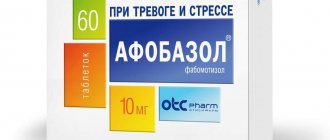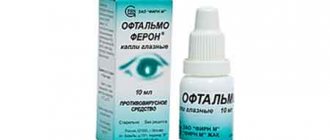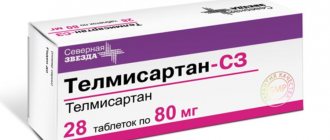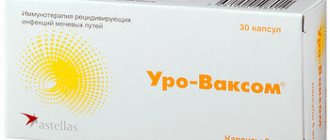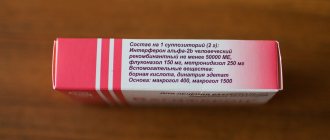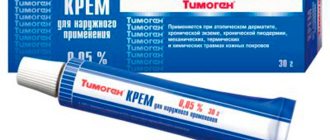2940
According to statistics, every year in Russia more and more cases of people becoming infected with the hepatitis B or C virus are registered. Another problem that deserves special attention is cancer. In most cases, the treatment of such diseases is ineffective, but with the release of the drug Altevir on the market, the situation has changed for the better.
Composition of the medicine
Altevir is an immunomodulatory agent that exhibits antiviral and antitumor effects. That is why this drug is often used to treat hepatitis B or C, as well as some cancers. The significant effectiveness of this medicine allows it to be successfully used to treat HIV-positive people who have a weakened immune system.
The active ingredient of the drug is interferon alpha-2b. This recombinant human protein is synthesized by Escherichia coli, the genome of which contains the interferon gene transferred from the human genome using genetic engineering methods. The rapid division of bacterial cells, which occurs every 20 minutes, produces a large amount of interferon.
In addition to the active substance, Altevir contains auxiliary components that retain all the properties of interferon and allow it to be delivered unchanged to the small intestine, where absorption into the blood occurs.
Additional substances are the same for all dosages and their composition is as follows:
- sodium chloride;
- sodium acetate;
- sodium salt of ethylenediaminetetraacetic acid;
- twin 80;
- dextran;
- deionized water for injection.
Reviews
Scientists, medical practitioners and patients themselves give a positive assessment of Altevir.
You can read patient reviews about the drug at the end of the article.
It is characterized as:
- an effective drug against viruses, neoplasms, infectious hepatitis,
- medicine is relatively low cost,
- a drug with a number of side effects that are difficult to tolerate.
Difficult side effects make patients think that Altevir is low-effective, but this is not the case at all.
The severity of undesirable manifestations after taking the medicine depends on the properties of the interferon included in the drug.
Altevir includes interferon obtained from human Escherichia coli, which is responsible for a large number of side effects, but the high effectiveness of the drug is undoubted.
Altevir has acquired a reputation as an effective drug with an acceptable price-quality ratio. Those who, with its help, stopped the growth of a tumor and completely recovered from hepatitis speak well of the drug. Most likely, the drug was prescribed to them on time and in the correct dosage.
Release form
Altevir for treatment is used in the form of injections, which are performed either subcutaneously or intramuscularly. The medicinal solution is a clear liquid that has no color or sediment.
The drug has the following forms of release:
- ampoule;
- bottle;
- glass syringe.
For each form of release of the drug, the volume is the same and is 0.5 ml or 1 ml. The dosage of the active substance may be different for such a volume.
The dose of interferon alfa-2b in one injection may be as follows:
- 1 million IU;
- 3 million IU;
- 5 million IU;
- 10 million IU;
- 15 million IU.
The dosage of Altevir is selected individually for each patient based on the symptoms and severity of the disease.
Pharmacological properties
After administration of the drug into the body, its maximum concentration is reached after 4-12 hours, and interferon is absorbed into the blood from 80 to 100% of the total dose of Altevir. Half of the dose of medication is eliminated from the body in 2-6 hours.
Most of the interferon (up to 80%) remains circulating in the blood, and only 20% can be absorbed into the tissues. The active substance does not penetrate the spinal cord and brain, and therefore does not affect the human nervous system.
Complete elimination of Altevir from the body occurs after 16-24 hours.
If the drug is administered intravenously, then its maximum concentration in the blood increases instantly, but the active substance is destroyed very quickly (within 2 hours).
Altevir does not accumulate in the body. Excreted by the kidneys. The active substance is processed by the liver, as a result of which the activity of liver enzymes responsible for neutralizing toxins and some drugs is significantly reduced.
Therapeutic results
Interferon alpha-2b exhibits antiviral, immunomodulatory, antiproliferative and antitumor effects. Due to this, the drug effectively fights some infectious and oncological diseases.
Interferon alpha in cells blocks the synthesis of some viral proteins, as a result of which the reproduction of the virus is suppressed. Also, at high concentrations of the active substance in the blood, transcription in viral particles decreases, so the use of Altevir allows not only to successfully fight infection, but also to protect healthy cells of the human body from infection.
The protective mechanism of healthy cells is based on the fact that interferon binds to receptors on the surface of the membrane, thereby preventing the virus from being adsorbed.
If the cell is infected with a virus, then the active substance of the drug recognizes and destroys such a cell.
Antitumor and antiproliferative effect
The development of a tumor occurs due to a metabolic failure in the cell. As a result, uncontrolled cell growth begins.
Under the influence of interferon alpha, the rate of metabolic processes is significantly reduced, and it is possible to switch to another type of metabolism, which helps stop uncontrolled cell growth and division.
In addition, the process of transcription and translation of oncogenes, which are responsible for cell transformation, slows down.
Given these properties, Altevir is effective for the treatment of certain tumors (breast carcinoma, prostate tumors, etc.).
Strengthening the immune system
The main function of interferon is to enhance the action of macrophages and NK cells (natural killer cells). As a result, the immune system can effectively fight any xenobiotics, such as viruses. Activation of NK cells promotes tumor destruction.
In addition, Altevir promotes the production of leukocytes, all types of lymphocytes, which makes it possible to destroy infection in the body. Also, when using the drug, tissue regeneration significantly increases. Activation of the synthesis of immunoglobulin A, which occurs due to interferon alpha-2b, protects the mucous membranes from the adsorption of pathogenic microorganisms and viruses on them.
The principle of correct use of the drug Altevir
The main substance included in the drug is recombinant human interferon alpha-2b. In addition to the main component, the drug contains a high content of other substances, including:
- table salt (sodium chloride);
- sodium acetate;
- dextran-40;
- sodium EDTA;
- Tweena-80;
- purified, deionized water necessary for injection use.
All components are presented in equal proportions. The drug is injected subcutaneously or directly into the muscle. Sometimes Altevir can be prescribed intravenously. The maximum concentration in the blood of the component is achieved within 4-12 hours. The drug begins to be eliminated from the body by the gastrointestinal tract within 2-6 hours.
Accumulation of Altevir in the human body with any type of administration is not observed. Substances in the body are processed by liver enzymes and then excreted by the kidneys along with urine.
The drug has the following properties:
- effectively fights viruses of various types;
- supports immunity;
- has an antiproliferative effect;
- affects neoplasms, preventing the transition to malignant ones.
Let's look at each property in more detail.
With the help of interferon, a chain of reactions is launched through which cells interact, as a result of which viruses lose their ability to reproduce. In this case, the synthesis of proteins necessary for the functioning of viruses does not occur. There is a significant reduction in the speed of reading the genetic material of the viral particle, as a result of which its reproduction and damage to other cells is prevented.
Among other things, the body begins to resist viruses, the defense of the immune system increases. With the help of the drug Altevir, viruses of various types are eliminated. With the help of the substance, complications after using the product are prevented. The virus cannot re-enter the body.
The medication has antiproliferative and antitumor effects. With its help, cancer cells stop multiplying. The achievement of this effect is observed as the cellular structure of cancer formations changes. Thanks to Altevir, tumors stop growing. With the help of interferon alpha-2b, the synthesis of special substances called oncogenes ceases, as a result of which the cells remain in their normal state.
With the help of the drug, the protection of the immune system is supported, thereby normalizing the efficiency and structure of cells. There is an increase in the activity of macrophages and natural killer cells, as a result of which infected cells and the pathogenic agents themselves are destroyed. These natural substances destroy cancer that has appeared in the human body.
With the help of Altevir, cells are stimulated, which leads to the activity of microorganisms. Leukocytes begin to actively multiply, tissues become intact. Immunoglobulin A is actively produced, due to which pathogenic microbes are completely destroyed. Soon after starting to use the drug, the patient begins to feel better.
The medication is prescribed in cases of development:
- acute hepatitis B group;
- chronic active hepatitis B, in this case, liver cirrhosis has not yet manifested itself, but the analysis already contains substances positive for HBV-DNA or HBeAg;
- chronic hepatitis B, which occurs together with glomerulonephritis;
- chronic hepatitis C, but in this case liver failure does not occur;
- encephalitic manifestations;
- herpes virus infection;
- cytomegalovirus infection;
- signs of Galoshi's sarcoma;
- complications caused by surgery.
With the help of medication, neoplasms, including those of an oncological nature, can be eliminated.
The therapeutic effect is found in the treatment of:
- laryngeal papillomas;
- genital warts, which are localized anywhere;
- hairy cell leukemia;
- non-Hodgkin's lymphoma chronic myeloid leukemia;
- chronic myelofibrosis;
- multiple myeloma occurring in a generalized form;
- neoplasms in the kidney area, including if metastases have already affected the pulmonary region.
Among other things, the drug is prescribed for preventive purposes to people who have had a cancerous tumor removed.
The instructions for use contain information on the dosage of the drug to be used. The medication is prescribed by a doctor intramuscularly, subcutaneously or intravenously. First, the effectiveness of the drug is checked for each patient individually.
Indications for use
Altevir is one of the most popular drugs today for the complex treatment of cancer and viral diseases. The use of this medication can significantly increase immunity, which is so important for such diseases.
According to the instructions for use, Altevir can be used to treat adults for the following ailments:
- hepatitis B and B + D of all genotypes;
- chronic form of hepatitis B without symptoms of liver cirrhosis;
- chronic form of hepatitis B together with glomerulonephritis;
- hepatitis C, including chronic form;
- encephalitis;
- herpes (viral disease);
- cytomegalovirus infection;
- Kaposi's sarcoma in VIL-positive people;
- any complications after surgery.
It is worth noting that using Altevir alone will not cure the infection. Complex therapy is required.
As noted above, the drug is used to treat certain cancer diseases, namely:
- condylomas of a pointed form;
- papillomas of the laryngeal mucosa;
- non-Hodgkin's lymphoma;
- hairy cell leukemia;
- chronic myelofibrosis;
- melanoma;
- malignant tumors in the kidneys with metastases in the lungs;
- myeloid leukemia;
- multiple myeloma;
- prevention of relapse after tumor removal.
Contraindications
The active substance in the medicine affects almost all organs and systems.
Like any medication, Altevir has a number of contraindications for which the drug is strictly prohibited from being used:
- significant disturbances in the functioning of the cardiovascular system (myocardial infarction, tachycardia, etc.);
- renal failure;
- autoimmune diseases;
- hepatitis accompanied by cirrhosis of the liver;
- epilepsy;
- diabetes mellitus of all types;
- use of immunosuppressants (including during organ transplantation);
- depression;
- blood clotting disorders;
- pregnancy and lactation;
- intolerance or allergic reaction to any of the components included in the drug.
Drug interactions
Currently, the degree of drug interaction between Altevir and other medications has not been studied. Experts advise careful use of the medication and sleeping pills, sedatives, and narcotics in parallel. When Altevir and theophylline are prescribed simultaneously, the concentration of the latter in the blood serum should be monitored and, if necessary, its dosage regimen should be changed.
In addition, Altevir should not be used with antibiotics, analgesic medications, or drugs that have a myelosuppressive effect.
When Altevir is used in combination with chemotherapeutic drugs (including the use of Cytarabine, Cyclophosphamide, Doxorubicin, Teniposide), the risk of developing toxic effects increases. The patient may feel dizzy and headache, the skin will acquire a reddish tint, sometimes itching and discomfort will be felt, and the temperature will rise.
The drug Altevir is effective in the treatment of various infectious diseases. With the help of the medicine, the infection is effectively eliminated. The drug can also be used to treat various oncological pathologies. The use of Altevir should be constant and in a strictly defined dosage. Do not use the drug without a doctor's prescription. Only in this case will the patient maintain health for a long time.
Instructions for use
The number of Altevir injections for the treatment of viral and oncological diseases is selected individually for each patient.
In addition, the duration of treatment is also taken into account. Injections can be given intramuscularly, subcutaneously or intravenously.
Dosage of the drug for certain diseases:
- Hepatitis B. The medicine is injected under the skin or into the muscle three times a week, 3 million or 10 million IU. The course of treatment is 16−24 weeks.
- Hepatitis C. Injections are given subcutaneously or intramuscularly. The dose of Altevir is 3 million (the price of which is 430 rubles) 3 times a week. Therapy lasts from 24 to 48 weeks.
- Papillomas on the laryngeal mucosa. Interferon treatment should be started only after papillomas have been removed. The dosage of the drug is selected individually based on the general health of the patient. As a rule, the course of treatment lasts 6 months.
- Hairy cell leukemia. The injections are given subcutaneously. Dose: 2 million IU. The duration of therapy can be from 1 to 6 months. It is important to note that treatment can also be carried out after extirpation of the spleen.
- Chronic myeloid leukemia. Altevir is administered subcutaneously, the dose is 5 million IU (or 10 million) per day. For this disease, the maximum dose of the drug that the patient can tolerate without side effects is selected. Therapy can last from 8 to 12 weeks.
- Non-Hodgkin's lymphoma. Treatment must be comprehensive. The drug is injected under the skin three times a week for 2-3 months.
- Melanoma. Altevir should only be injected intravenously after removal of the tumor to prevent relapse. The recommended dose for the first stage of therapy is 15 million IU (5 times a week, duration 1 month), for the second - 10 million (3 times a week, duration 48 weeks). The entire course of treatment should be without interruptions. It is important to note that the dosage may vary as it depends on the patient's health condition.
- Malignant neoplasms in the kidneys. Injections of the drug are given subcutaneously three times a week. The dose can be from 3 to 10 million IU.
When during treatment with Altevir there is a significant deterioration in the patient's condition, it is recommended to either discontinue the drug or reduce the administered dose by 2 times.
The dose of the drug is adjusted based on the result of a blood test, namely the number of platelets and granulocytes.
Altevir is administered intravenously using a dropper. To do this, the medicine is mixed with 100 ml of saline solution. It is important to note that the drug must be used within 20 minutes after opening it.
Overdose and interactions with other medications
No cases of overdose were identified during treatment.
Since the treatment of viral infections and cancer must be comprehensive, Altevir should be used with caution, constantly monitoring the number of granulocytes and platelets.
When using Altevir with sleeping pills, sedatives, narcotic painkillers or medications that help slow down the process of hematopoiesis, special monitoring of the patient's condition by the attending physician is required.
Altevir solution d/in. 3 million IU/ml amp. 1 ml No. 5 65502
Latin name
Altevir
Active substance
Interferon alpha-2b human recombinant (Interferonum alpha-2b)
ATX:
L03AB05 Interferon alpha-2b
pharmachologic effect
Pharmacological action - antiviral, immunomodulatory, antitumor, antiproliferative.
Directions for use and doses
SC, IM, IV. Treatment should be started by a doctor. Further, with the permission of the doctor, the patient can administer the maintenance dose to himself (in the case of subcutaneous or intramuscular administration). For chronic viral hepatitis B - subcutaneous or intramuscular at a dose of 5–10 million IU 3 times a week for 16– 24 weeks Treatment is stopped after 3-4 months of use in the absence of positive dynamics (according to a DNA study of the hepatitis B virus). For chronic viral hepatitis C - subcutaneously or intramuscularly at a dose of 3 million IU 3 times a week for 6-12 months . In patients with a relapsing course of the disease and patients who have not previously received treatment with interferon alfa-2b, the effectiveness increases when using Altevir® in combination with ribavirin. The duration of combination therapy is at least 6 months. For patients with chronic hepatitis C with 1 genotype of the virus and a high viral load, in whom hepatitis C virus RNA is not detected in the blood serum by the end of the first 6 months of treatment, Altevir® therapy should be carried out for 12 months. Laryngeal papillomatosis - subcutaneously at a dose of 3 million IU /m2 3 times a week. Treatment begins after surgical (laser) removal of the tumor tissue. The dose is selected taking into account the tolerability of the drug. To achieve a therapeutic effect, therapy may be required for 6 months. Hairy cell leukemia - subcutaneously at a dose of 2 million IU/m2 3 times a week (for patients after splenectomy and without it). In most cases, normalization of one or more hematological parameters occurs after 1–2 months of treatment; it is possible to increase the treatment period to 6 months. This dosage regimen should be followed continuously, unless the disease rapidly progresses or symptoms of severe intolerance to the drug occur. Chronic myeloid leukemia—the recommended dose of Altevir® as monotherapy is 4–5 million IU/m2 per day subcutaneously daily. To maintain the white blood cell count, a dose of 0.5–10 million IU/m2 may be required. If treatment allows to achieve control of the number of leukocytes, then to maintain hematological remission the drug should be used at the maximum tolerated dose (4-10 million IU/m2), daily. The drug should be discontinued after 8-12 weeks of treatment if therapy has not led to partial hematological remission or a clinically significant decrease in the number of leukocytes. For non-Hodgkin's lymphoma, Altevir® is used as adjuvant therapy in combination with standard chemotherapy regimens. The drug is administered subcutaneously at a dose of 5 million IU/m2 for 2–3 months. The dose must be adjusted depending on the tolerability of the drug. For melanoma, Altevir® is used as adjuvant therapy in cases of high risk of relapse in adults after tumor removal. Altevir® is administered intravenously at a dose of 15 million IU/m2 5 times a week for 4 weeks, and then subcutaneously at a dose of 10 million IU/m2 3 times a week for 48 weeks. The dose must be adjusted depending on the tolerability of the drug. For multiple myeloma, subcutaneous injection at a dose of 3 million IU/m2 3 times a week. Altevir® is prescribed during the period of achieving stable remission. For Kaposi's sarcoma in the setting of AIDS, the optimal dose has not been established. The drug is used subcutaneously or intramuscularly at a dose of 10–12 million IU/m2 per day. If the disease stabilizes or responds to treatment, therapy is continued until tumor regression occurs or drug discontinuation is required. Kidney cancer—the optimal dose and regimen have not been established. It is recommended to use subcutaneous injection in doses of 3 to 10 million IU/m2 3 times a week.
Storage conditions
At a temperature of 2–8°C. Do not freeze. Keep out of reach of children.
Best before date
18 months Do not use after the expiration date indicated on the package. 2000-2017. Register of Medicines of Russia
Composition and release form
Injection solution 0.5 or 1 ml interferon alpha-2b human recombinant 1 million IU3 million IU5 million IU10 million IU15 million IUexcipients: sodium acetate; sodium chloride; ethylenediaminetetraacetic acid disodium salt; twin 80; dextran 40; water for injection in ampoules, vials (1, 3, 5, 10, 15 million IU) or syringes (3, 5, 10, 15 million IU); in a cardboard pack 5 or 10 ampoules; 1 or 5 bottles; 1 or 3 syringes.
Indications
In complex therapy in adults: chronic viral hepatitis B (without signs of liver cirrhosis); chronic viral hepatitis C in the absence of signs of liver failure (monotherapy or combination therapy in combination with ribavirin); laryngeal papillomatosis, genital warts; hairy cell leukemia; chronic myeloid leukemia; non-Hodgkin's lymphoma; melanoma; multiple myeloma; Kaposi's sarcoma due to AIDS; advanced kidney cancer.
Contraindications
hypersensitivity to recombinant interferon alfa-2b or any of the components of the drug; history of severe cardiovascular disease (uncontrolled chronic heart failure, recent myocardial infarction, severe heart rhythm disturbances); severe renal and/or liver failure (including caused by the presence of metastases); epilepsy and/or other severe disorders of the central nervous system, especially manifested by depression, suicidal thoughts and attempts (including a history); chronic hepatitis with decompensated cirrhosis of the liver and in patients on or after previous therapy with immunosuppressants ( with the exception of the condition after completion of short-term therapy with GCS); autoimmune hepatitis and other autoimmune diseases, as well as taking immunosuppressive drugs after transplantation; thyroid disease that cannot be controlled by conventional therapeutic methods; decompensated lung diseases (including COPD); diabetes mellitus , prone to ketoacidosis; hypercoagulation (incl. thrombophlebitis, pulmonary embolism); severe myelosuppression; pregnancy; breastfeeding period.
Use during pregnancy and breastfeeding
Contraindicated during pregnancy. Breastfeeding should be stopped during treatment.
Description of the dosage form
Transparent colorless liquid.
Pharmacodynamics
Interacting with specific receptors on the cell surface, interferon alpha-2b initiates a complex chain of changes inside the cell, including the induction of the synthesis of a number of specific cytokines and enzymes, and disrupts the synthesis of viral RNA and viral proteins in the cell. The result of these changes is nonspecific antiviral and antiproliferative activity associated with the prevention of virus replication in the cell, inhibition of cell proliferation and the immunomodulatory effect of interferon. Interferon alpha-2b stimulates the process of antigen presentation to immunocompetent cells, has the ability to stimulate the phagocytic activity of macrophages, as well as the cytotoxic activity of T- cells and “natural killer” cells involved in the antiviral response. Prevents cell proliferation, especially tumor cells. It has an inhibitory effect on the synthesis of some oncogenes, leading to inhibition of tumor growth.
Pharmacokinetics
When administered subcutaneously or intramuscularly, the bioavailability of interferon alfa-2b ranges from 80 to 100%. Tmax—4–12 hours, T1/2—2–6 hours, respectively. 16–24 hours after administration, recombinant interferon alpha-2b is not detected in the blood serum. Metabolized in the liver. Alpha interferons can disrupt oxidative metabolic processes, reducing the activity of hepatic microsomal enzymes of the cytochrome P450 system. It is excreted mainly by the kidneys by glomerular filtration.
Interaction
Drug interactions between Altevir® and other drugs have not been fully studied. Altevir® should be used with caution simultaneously with hypnotics and sedatives, narcotic analgesics and drugs that potentially have a myelosuppressive effect. When Altevir® and theophylline are prescribed simultaneously, it is necessary to monitor the concentration of the latter in the blood serum and, if necessary, change its dosage regimen. When using Altevir® in combinations with chemotherapeutic antitumor drugs (cytarabine, cyclophosphamide, doxorubicin, teniposide) increase the risk of toxic effects.
special instructions
Before treatment with Altevir® for chronic viral hepatitis B and C, it is recommended to perform a liver biopsy to assess the degree of liver damage (the presence of signs of an active inflammatory process and/or fibrosis). The effectiveness of treatment of chronic hepatitis C increases with combination therapy with Altevir® and ribavirin. The use of Altevir® is ineffective in the development of decompensated cirrhosis of the liver or hepatic coma. If severe side effects develop during therapy with Altevir®, the dose of the drug should be reduced by 50% or the drug should be temporarily discontinued until they disappear. If side effects persist or reappear after a dose reduction, or progression of the disease is observed, then treatment with the drug should be discontinued. If the platelet count decreases below 50 109/l or the granulocyte count below 0.75 109/l, it is recommended to reduce the dose of Altevir® to 2 times with blood test control every week. If these changes persist after dose reduction, antiviral therapy should be discontinued. If the platelet count decreases below 25 109/l or the granulocyte count below 0.5 109/l, the drug should be discontinued with blood test monitoring after a week. In patients receiving the drugs interferon alpha-2b, antibodies can be detected in the blood serum that neutralize its antiviral activity. In almost all cases, antibody titers are low, their appearance does not lead to a decrease in the effectiveness of treatment or the occurrence of other autoimmune disorders. Preparation of a solution for intravenous administration: the volume of Altevira® solution required to prepare the required dose is added to 100 ml of sterile isotonic solution (0 .9%) sodium chloride and administered over 20 minutes.
Pharmacological groups
Antiviral (except HIV) agents Interferons
Characteristic
Human recombinant interferon alpha-2b is isolated from Escherichia coli cells, into the genetic apparatus of which the human interferon alpha-2b gene is integrated. The polypeptide structure of the molecule, biological activity and basic pharmacological properties of the recombinant protein are identical to human interferon alpha-2b.
Side effects
Most often - fever, weakness (they are dose-dependent and reversible reactions, disappear within 72 hours after a break in treatment or its cessation), headache, myalgia, chills, loss of appetite, nausea. Less often - vomiting, diarrhea, arthralgia, asthenia, drowsiness, dizziness, dry mouth, alopecia, depression, suicidal thoughts and attempts, malaise, increased sweating, change in taste, irritability, insomnia, decreased blood pressure. Rarely - abdominal pain, skin rash, nervousness, itchy skin, anxiety, weight loss body, dyspepsia, tachycardia, autoimmune thyroiditis. Changes (reversible) in laboratory parameters: leukopenia, granulocytopenia, decreased hemoglobin levels, thrombocytopenia, increased activity of liver enzymes.
Possible product names
- Altevir solution d/in. 3 million IU/ml amp. 1 ml No. 5
- ALTEVIR 3 MILLION 1 ML AMP. No. 5
- ALTEVIR (INTERFERON) 3 MILLION IU N5 AMP R-R D/IN
- ALTEVIR R-R D/INJEC. 3 MILLION. IU/ML X5
- ALTEVIR (INTERFERON ALPHA 2-B) 3 MILLION IU/ML 1 ML SR D/IN AMP. X5 B M (R)
- (Altevir) Altevir solution d/in. 3 million IU/ml amp. 1 ml No. 5
Side effects
Side effects from using Altevir resemble cold symptoms (general malaise and chills) and directly depend on the dose of the drug.
As a rule, these signs disappear after a few days.
Most often, patients experience the following side effects during treatment with Altevir:
- headache and muscle pain;
- decreased appetite;
- nausea, in rare cases vomiting;
- decrease in blood pressure.
According to the instructions and reviews on the forums, side effects from Altevir can manifest themselves in the form of insomnia, heart rhythm or digestive disorders, depression, irritability, weight loss, baldness, skin rashes, increased sweating, etc.
The hemoglobin concentration and the number of blood cells may also decrease.
Analogues and cost
As part of Altevir analogues, the main active ingredient is also interferon alpha-2b, and its concentration may differ. In addition, the excipients of the analogues are somewhat different, which allows patients with intolerance or allergy to a certain component in Altevir to select the appropriate medicine.
Analogues of the drug are:
- Interferal;
- Realdiron;
- Eberon alpha R;
- Alfaron;
- Reaferon EU.
Also analogues are those drugs that contain a different active substance, but have the same mechanism of action as interferon alfa-2b. They can be Ronbetal, Inferon, Interlock, Genfaxon, Avonex, Rebif, Extavia, Synnovex and others.
On the official websites of pharmacies, the price can vary from 350 rubles for 5 ampoules to 2100 rubles. The cost depends on the dosage of the drug.
You can buy medication in Russia if you have a prescription from your doctor. At the same time, pharmacies recommend that patients place an order for Altevir in advance. This is due to the fact that the shelf life of the drug is 18 months.
Altevir must be stored at a temperature of +2 to +8 degrees. Freezing the solution in ampoules is strictly prohibited. Failure to comply with storage conditions significantly reduces the effectiveness of the drug.
Analogs
These are drugs of the same pharmacological group, similar to Altevir in terms of their mechanism of action:
- Avonex;
- Betaferon;
- Alfaferon;
- Genfaxon;
- Interal P;
- Ingaron;
- Interlock;
- Rekolin;
- Infibeta;
- Pegasis;
- Rebif;
- Synnovex;
- Extavia.
It is not advisable to make an independent decision to replace a prescribed drug with an analogue. Consult a doctor or specialist!



